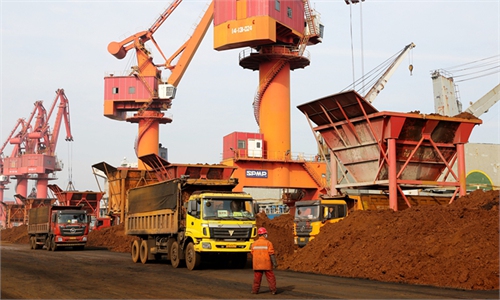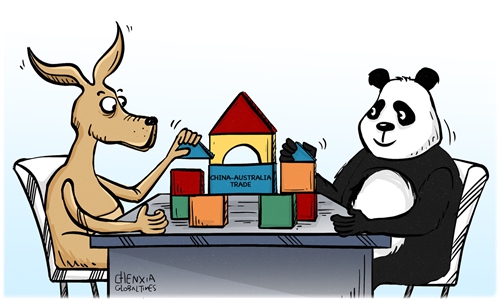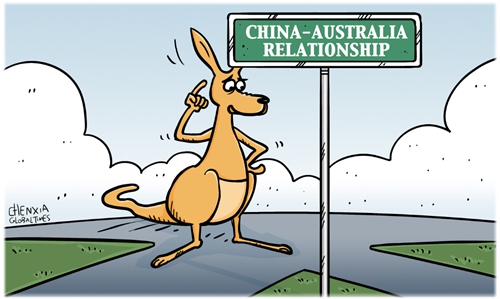
Imported beef is sold in a supermarket in Shanghai on August 20, 2020. Photo: VCG
Some Australian beef exporters whose exports to China have been suspended due to quality and other issues are seeking to fully resume trade with China, with some industry players holding talks, the Global Times has learned.
Amid gradually improving ties, there are growing expectations for a recovery of bilateral trade, with more interactions expected between industry groups of the two countries in some major traded goods such as beef, an insider said.
There could be gains in particular for beef, a key Australian export, despite some uncertainties and variables, a meat industry insider said on Sunday on the condition of anonymity. "We have been in close talks with an industry representative group," the person said, without offering details.
In 2020, China suspended beef imports from six Australian beef suppliers due to quality and other issues found in customs inspection.
While the overall beef trade continued, soured bilateral relations due to the previous Australian government's hostile policies against China pushed many Chinese companies and consumers to seek more reliable and trustworthy supplies. Such decisions affected bilateral trade.
In 2020, the Chinese mainland imported 253,675 tons of Australian beef, accounting for 12 percent of total beef imports during the period. That was the lowest volume in four years and a decrease of 6.5 percentage points in market share from 2019, according to data from the General Administration of Customs of China.
Still, Australia has been one of the major suppliers of beef to China, despite a decrease. In 2022, Australian beef exports to the Chinese mainland dropped 2 percent year-on-year to 175,127 tons, according to Meat & Livestock Australia.
Meanwhile, other countries, particularly those in South America, have increasingly become major sources of supplies. Brazil has become the top beef source, accounting for about 40 percent of the total.
"The expansion of beef imports from other countries has led to rising competition in the market and the demand for Australian beef, which has no particular advantages in quality and price, is relatively weaker," a trader said.
The Casino Food Co-op CEO Simon Stahl told the Australian Broadcasting Corp that losing the China market had cost the business millions of dollars.
But as demand has boomed and trade ties have improved, there's rising speculation about the possible resumption of beef exports for some Australian producers.
Stahl said "we've even got a customer coming out to see us for the first time since the suspension and since COVID," according to the Australian media outlet.
Yet an employee of Australian beef producer John Dee Pty Ltd, which was on the suspended list, told the Global Times on Sunday that there has been no news regarding any resumption.
Australia is very much looking forward to fully resuming beef imports to China, because the country's production exceeds demand, the export volume is large, and China is a huge market, the senior industry insider said, noting the strong complementarity in trade.
China is also ramping up local beef production for its home market while reducing heavy reliance on any single supplier. In 2022, China's domestic beef supply accounted for 73 percent of its overall beef consumption. In the 14th Five-Year Plan period (2021-25), the self-sufficiency rate of beef is expected to reach 85 percent.
While domestic output has been growing, demand may also stay strong as consumption in China rebounds faster than expected amid the nation's downgraded epidemic response, industry insiders said.



